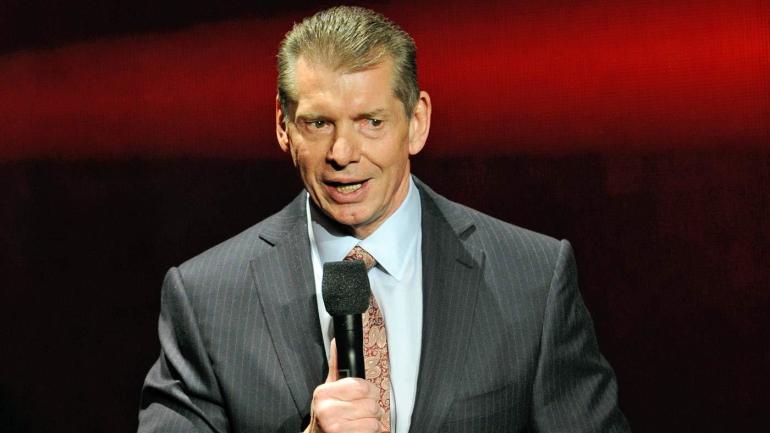
There's a term that is often used to justify difficult or morally questionable decisions in the face of large economic gain. One can hear it anywhere from a corporate setting to the famous scene involving organized crime in the 1972 film "The Godfather."
"It's not personal; it's strictly business."
Historically, the world of combat sports promotion hasn't been any different.
When the UFC rewarded Jon Jones and Brock Lesnar with immediate title shots fresh off of failed drug tests and suspensions? It's strictly business.
When the state of Nevada allowed Floyd Mayweather to delay his impending 2012 jail sentence for felony domestic assault by one month in order for the city of Las Vegas to reap the financial benefits of his pay-per-view bout against Miguel Cotto? Again, it's just business.
WWE, which often straddles the line between combat sports and a scripted television drama thanks to its hybrid "sports entertainment" product, is no different. The worldwide pro wrestling leader has been steadily criticized of late for decisions linked to a 10-year "strategic multi-platform partnership" it signed with Saudi Arabia in February that left the company looking anywhere from tone deaf to transparently greedy.
In the end, critics seemed to come to terms with the idea that WWE accepted a financial offer so big it simply couldn't refuse, even as the company worked hard to paint a public narrative about promoting social change within the Middle East nation. WWE often pointed to its December 2017 Sasha Banks-Alexa Bliss match in neighboring Abu Dhabi, the first of its kind for women in the United Arab Emirates, as a precursor.
Yet the wobbly leg WWE had been standing on in 2018 while presenting such seemingly hypocritical messages (like partnering with a nation so notorious for its treatment of women amid the company's own self-proclaimed "women's revolution") outright collapsed on Thursday. That's when the Saudi Arabian attorney general admitted that the Oct. 2 murder of dissident journalist Jamal Khashoggi at a Turkish embassy was "premeditated." The news ended a whirlwind few weeks in which the Saudi Arabian government was accused of covering up the death.
For even the staunchest of WWE supporters and apologists, this was the last straw.
Amid public protests from several U.S. government officials, including five senators urging WWE to postpone their Nov. 2 Crown Jewel event in Riyadh and reconsider it's involvement with Saudi Arabia, WWE decided Thursday the only change it would make is not changing at all.
In a statement released as part of its Q3 earnings report published to its corporate website, WWE cited "contractual obligations" and an effort to ensure "2018 guidance stay on schedule financially" as reasons to move forward with the event. "If the event were to be canceled," WWE said, "there could be a material adverse impact on 2018 Adjusted OIBDA guidance."
Despite the fact that representatives of other Fortune 500 companies like Ford, JPMorgan Chase, Viacom, AOL, Uber and CNN pulled out of this week's Future Investment Initiative forum, also held in Riyadh, and billionaire businessman Richard Branson suspended his partnership with Saudi Arabia's space tourism venture, WWE chairman Vince McMahon decided on a different response.
Although McMahon never actually said, "It's not personal; it's just business" during Thursday's Q3 financial conference call, his reaction did more than suggest that. McMahon repeatedly shot down questions seeking further reasoning for the company's decision, instead claiming, "We're not going to talk a lot about that, it's a very sensitive subject. I think our statement says all we're going to say about that today."
By saying next to nothing when given the chance, McMahon ultimately said too much.
WWE's public statement did nothing but confirm the importance it places on the almighty dollar, far above its tired grandstanding as crusaders for global change. Although the decision was consistent with WWE's record of smart financial positioning, which includes a meteoric transition from a mom-and-pop family business in the 1980s to a publicly traded juggernaut, it's a slap in the face to its typically sanctimonious facade.
While WWE's incredible philanthropy work -- going as far as working in breast cancer awareness and Special Olympic celebration segments into its flagship Raw show -- can't be erased by a single decision not to cancel a show, the message it sends royally dilutes the company's impact when trying to do so.
It's one thing for WWE to bastardize its annual Royal Rumble with a gluttonous 50-man version at its debut Saudi Arabian show in April, crammed in just three weeks after WrestleMania 34. It's another to send such a horribly mixed message by adhering to the same country's ruling that female wrestlers be banned from performing at the Greatest Royal Rumble card, despite WWE's own self-congratulatory behavior regarding its presentation of women.
But for WWE to stain the Greatest Royal Rumble broadcast with propaganda vignettes championing Saudi Arabia as a nation of change -- only to then stand firm amid reports of its own performers fearing for their safety entering Nov. 2 -- it simply became a bridge too far.
Promoting its inaugural all-women's pay-per-view on Sunday called WWE Evolution simply isn't a make-good for all of the negative public relations. For all of its grand intentions socially, WWE can't have it both ways.
When asked about the impact of Evolution, current Raw champion Ronda Rousey -- a pioneer for the advancement of women's sports long before her WWE debut as UFC's first female champion -- praised the company during Thursday morning's appearance on "The Rachael Ray Show."
"I really believe that WWE is social commentary for the entire world," Rousey explains. "The women's Evolution in the WWE is a reflection of the women's revolution happening around the world right now."
Oh, the irony.
As proven this week by the controversy surrounding Saudi Arabia, there's a lot more going on in the world than what takes place inside the "WWE Universe." Should WWE want to continue to present itself as a moral compass and force for global change in the world at large, it can no longer pick and choose when it's economically sound to do so.
What WWE would've given up financially by choosing to speak up and pull out of Saudi Arabia may not eclipse what it has already lost to its reputation by staying quiet.
Sometimes business is personal.
















